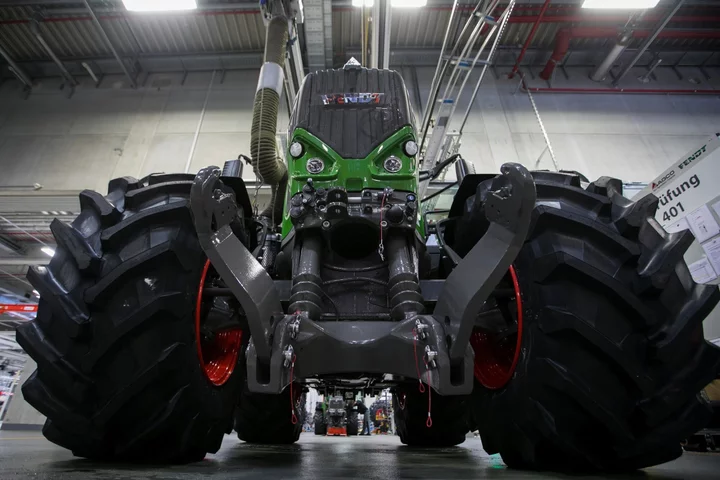German machinery companies aren’t seeing any sign of improvement in business prospects amid persisting global weakness, according to the country’s leading engineering industry lobby.
Orders in May fell by 10% in real terms compared with the same month in 2022, Frankfurt-based VDMA said in a release on Monday. Demand from abroad declined by 18%, outweighing a smaller increase in domestic business.
The report gives an initial hint of weakness in a pivotal week for data showing the health of manufacturing in Europe’s biggest economy after it suffered a recession earlier this year. It culminates in the release of industrial production numbers on Friday, which may show expansion stalled in May after a small increase the prior month.
“The downward trend of recent months thus continued,” Ralph Wiechers, chief economist of VDMA said in the statement. “Our picture of persistently weak global investment demand is confirmed. The order cushions for the coming months are still large enough, but there is a growing number of companies that are sensing a clear change here.”
Weak global demand from China has weighed on Germany’s manufacturing this year, and may continue to do so. Earlier on Monday, an index of manufacturing activity in the world’s second-biggest economy showed a slower pace of expansion in June as companies turned more cautious about their output outlook.
Business surveys in Germany chime with the VDMA report. The Munich-based Ifo institute’s index showed companies’ outlook in June deteriorated to the lowest seen in 2023.
That suggests that a recovery from the recession may be slow to take hold. The Bundesbank said last week that the economy probably expanded only slightly in the three months through June, weighed down by industry.
An index of factory purchasing managers for June was revised lower on Monday, to show even worse deterioration than previously reported.
“Conditions in the manufacturing sector have undoubtedly worsened, but this is not a crash,” Cyrus de la Rubia, chief economist at Hamburg Commercial Bank, said in an accompanying release. “It’s important to remember that new orders began falling from very high levels, and manufacturers haven’t resorted to job cuts yet.”

